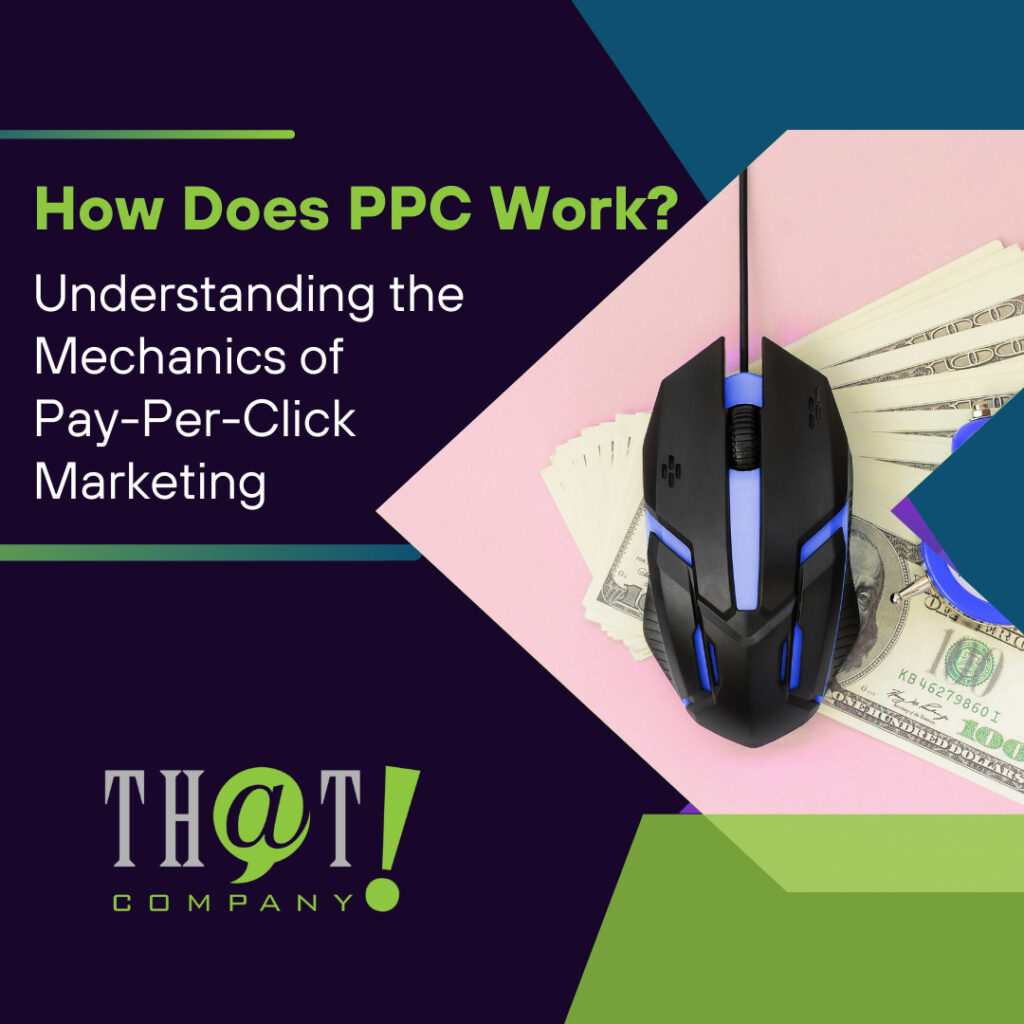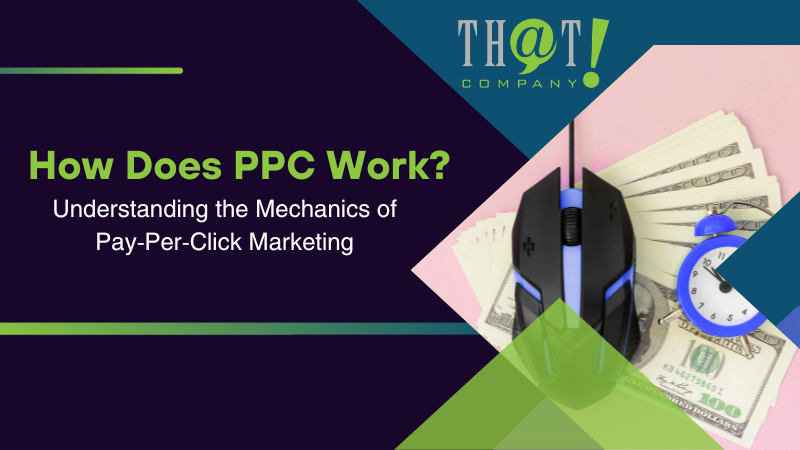
Imagine the power of driving targeted traffic to your website at the precise moment potential customers are searching for your products or services. Pay-per-click (PPC) advertising can make that a reality, offering businesses a powerful tool to reach their target audience and drive conversions. But how does PPC work? In this blog post, we’ll dive into the mechanics of “how does PPC work,” its benefits, and best practices to help you harness the full potential of this online marketing strategy.
How Does PPC Work: Key Takeaways
- PPC is an online advertising model in which businesses are charged each time someone clicks on their ads.
- White label PPC services enable agencies to grow their digital marketing offerings while optimizing operations and strengthening client relationships.
- Successful PPC campaigns require goal setting, targeted audiences, keyword research, ad group organization and A/B testing for maximum ROI.
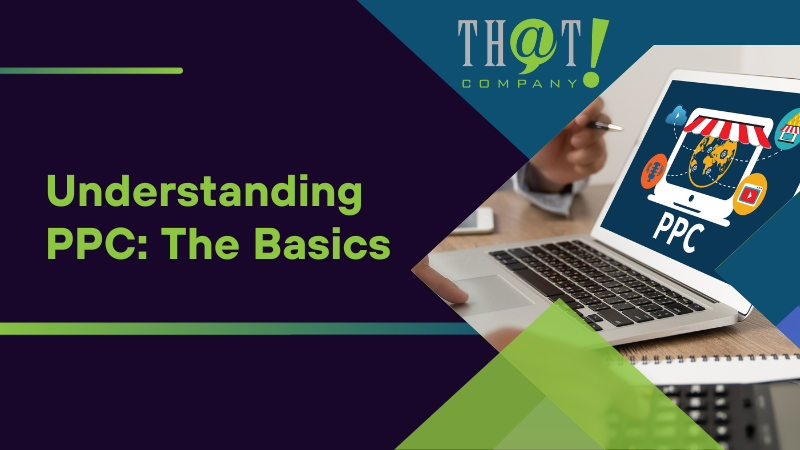
Understanding PPC: The Basics
PPC advertising is a form of online advertising where businesses display ads on search engines like Google and Facebook, and are charged for clicks on the ad. Curious about how PPC works? A successful PPC campaign is built around key elements such as keyword selection, bidding strategies, and ad rank determination.
PPC campaigns can be run on popular platforms such as Google Ads, Microsoft Advertising, and social media platforms like Facebook, Twitter, Instagram, and LinkedIn.
What is PPC?
Pay-per-click (PPC) is an online advertising model, also known as paid search. Advertisers are charged every time someone clicks on their ads. PPC ads appear at the top of the search engine results page (SERP) when users enter specific keywords or phrases related to the advertiser’s business offering.
With this targeted approach, businesses can connect with potential customers actively seeking their products or services, thereby enhancing conversion possibilities and revenue growth.
Key Components of PPC
Three major factors determine the success of a PPC campaign: keyword selection, bidding strategies, and ad rank determination.
Keyword selection involves choosing the most appropriate keywords to target potential customers searching for products or services related to the campaign through search ads. Incorporating search engine marketing strategies, including search engine optimization, it’s essential to consider negative keywords as well, to prevent irrelevant traffic and improve the overall campaign performance.
Bidding strategies involve setting a maximum bid for chosen keywords, with the highest bidder typically receiving the top ad placement.
Ad rank is a crucial metric that influences ad placement, calculated by multiplying the maximum bid by the Quality Score, which takes into account factors like click-through rate, ad relevance, and landing page experience.
Popular PPC Platforms
While Google Ads is the most widely recognized PPC platform, managing a Google Ads account can help you explore other options like:
- Microsoft Advertising (formerly Bing Ads)
also offer PPC advertising opportunities. Each platform offers unique features and benefits, making it crucial to select the one that aligns most closely with your advertising objectives and target audience.
A well-chosen platform allows you to optimize your ad budget and effectively connect with potential customers.
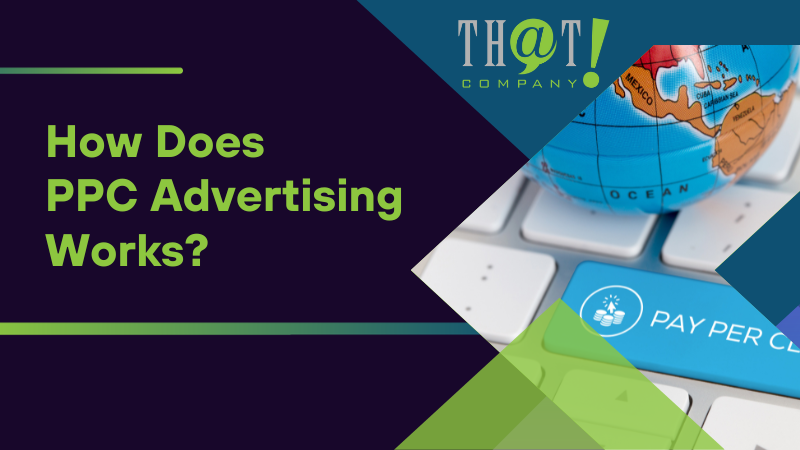
How Does PPC Advertising Works
For a successful PPC campaign, understanding the interplay of keyword selection, bidding, and ad rank in PPC advertising is vital. Mastering these components enables the creation of highly targeted campaigns that drive qualified traffic to your website, enhancing your return on investment.
Keyword Selection
Choosing the right keywords forms the bedrock of every successful PPC campaign. The goal is to choose relevant keywords that match user intent and have a high potential for conversions. To conduct effective keyword research, it’s essential to identify both short-term and long-term goals, use keyword research tools to find relevant keywords, and analyze their metrics to evaluate their potential.
By focusing on high-intent keywords that align with your campaign goals, you can drive targeted traffic to your website and increase the likelihood of converting visitors into customers.
Bidding and Auctions
Bidding and auctions are critical in deciding ad placement in PPC advertising. Advertisers set a maximum bid for their chosen keywords, and the highest bidder typically receives the top ad placement. The actual cost per click is determined by the formula (Ad Rank of the ad below yours) / (your Quality Score) + $0.01.
By strategically bidding on keywords and considering factors like competition and Quality Score, you can optimize your ad spend and improve the overall performance of your PPC campaign.
Quality Score and Ad Rank
The position of your ads on search engine results pages is significantly influenced by Quality Score and Ad Rank. A higher Quality Score can lead to better ad placements and lower cost per click (CPC). Quality Score is determined by several factors, including click-through rate, ad relevance, and landing page experience.
By focusing on creating relevant ad copy, optimizing your landing pages, and selecting appropriate keywords, you can improve your Quality Score, enhance your Ad Rank, and ultimately achieve better results with your PPC campaigns.
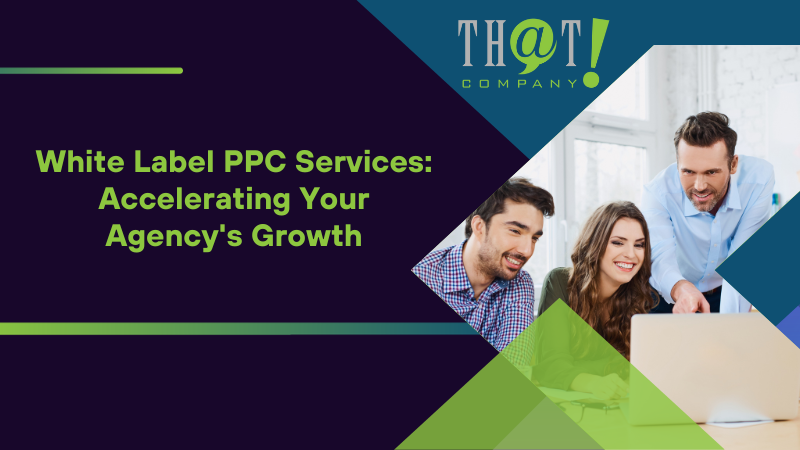
White Label PPC Services: Accelerating Your Agency’s Growth
For agencies looking to broaden their digital marketing offerings without further resource investments, white label PPC services can be a game-changer. By partnering with a white label PPC agency like That! Company, businesses can:
- Resell PPC advertising
- Streamline operations
- Enhance client relationships
- Maintain their own branding
Benefits of White Label PPC
White label PPC services offer a range of benefits, including:
- The ability to resell PPC advertising at a desired price
- Optimizing operations and focusing on other aspects of the business while ensuring that clients receive exemplary service
- Agencies can broaden their digital marketing services
- Attract new clientele
- Cultivate stronger long-term relationships by leveraging these services
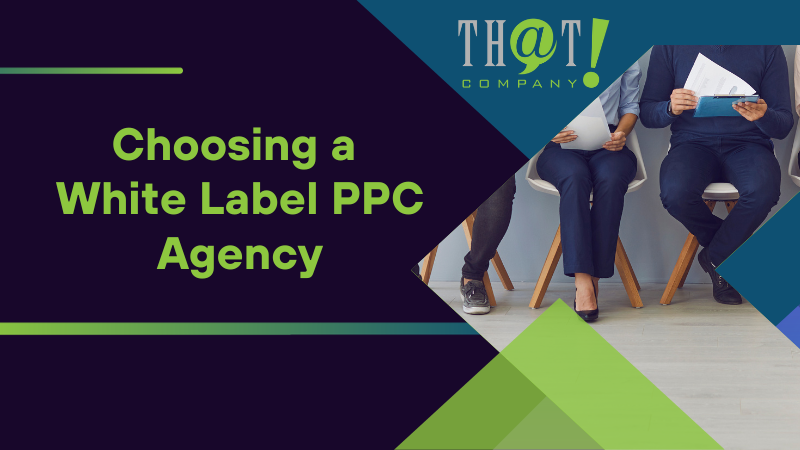
Choosing a White Label PPC Agency
Selecting the right white label PPC agency is crucial for ensuring a successful partnership. When making a decision, it’s important to evaluate:
- Qualifications
- Partnerships
- Pricing structures
- Flexible plans
Partnering with a trustworthy white label PPC agency like That! Company allows you to access expert PPC management services, sales support, and collaboration, all under your agency’s branding.
Sales Support and Collaboration
A strong white label partnership can provide valuable sales support and collaboration. White label PPC agencies like That! Company can represent your agency in the sales process, conducting presentations and client meetings under your agency’s brand. This sales support can help you acquire new clients, build trust and credibility, and ultimately strengthen your agency’s relationships with its customers.
Building a Successful PPC Campaign
A successful PPC campaign demands strategic planning and consistent optimization. From planning and goal setting to targeting and ad creation, each step plays a crucial role in ensuring the best possible results and return on investment.
Campaign Planning and Goal Setting
For success, clear goal setting and meticulous planning of your PPC campaign is vital. By identifying both short-term and long-term goals, aligning them with your overall business objectives, and setting specific, measurable targets, you can create a PPC campaign that drives targeted traffic to your website and achieves your desired outcomes.
Targeting and Ad Creation
A successful PPC campaign necessitates the following steps:
- Targeting the appropriate audience
- Creating persuasive ads that connect with users
- Selecting appropriate keywords
- Creating relevant ad copy
- Optimizing your landing pages
By following these steps, you can ensure that your ads connect with potential customers and drive conversions.
Monitoring and Optimization
Regular monitoring and consistent optimization are key to secure the success of a PPC campaign. By regularly analyzing performance metrics such as click-through rate, conversion rate, and return on ad spend, you can make informed decisions and adjust your campaign strategy to improve overall performance.
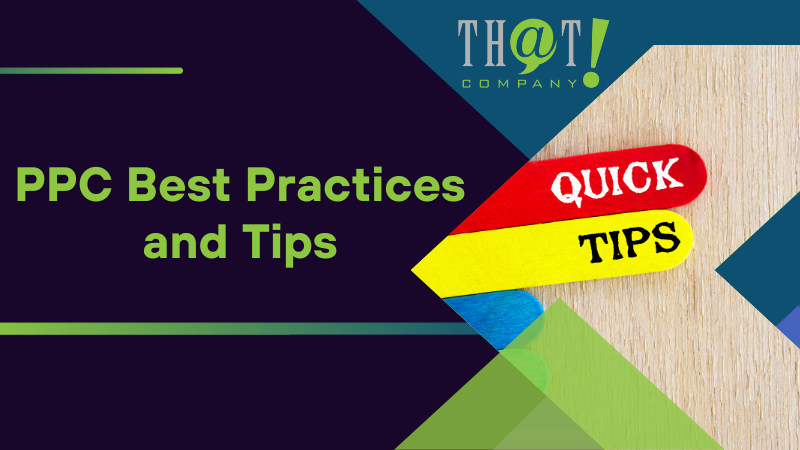
How Does PPC Work: Best Practices and Tips
Employing proven best practices and tips is crucial to maximize the effectiveness of your PPC campaigns. These include effective keyword research, ad group organization, and A/B testing and performance analysis.
Effective Keyword Research
Effective keyword research is a prerequisite for successful PPC campaigns. By using keyword research tools, analyzing keyword metrics, and focusing on high-intent keywords that align with your campaign goals, you can drive targeted traffic to your website and increase the likelihood of converting visitors into customers.
Ad Group Organization
Well-organized ad groups pave the way for creating more targeted and relevant ads, leading to enhanced campaign performance overall. By clustering keywords, ad text, and landing page content into groups, you can create more targeted ads that resonate with your audience and lead to higher click-through rates and Quality Scores.
A/B Testing and Performance Analysis
A/B testing and performance analysis facilitate continuous optimization of your PPC campaigns, securing optimum results and return on investment. By testing different variations of:
- ad copy
- headlines
- images
- landing pages
You can gain valuable insights and data to make informed decisions and enhance the efficacy of your PPC campaigns.
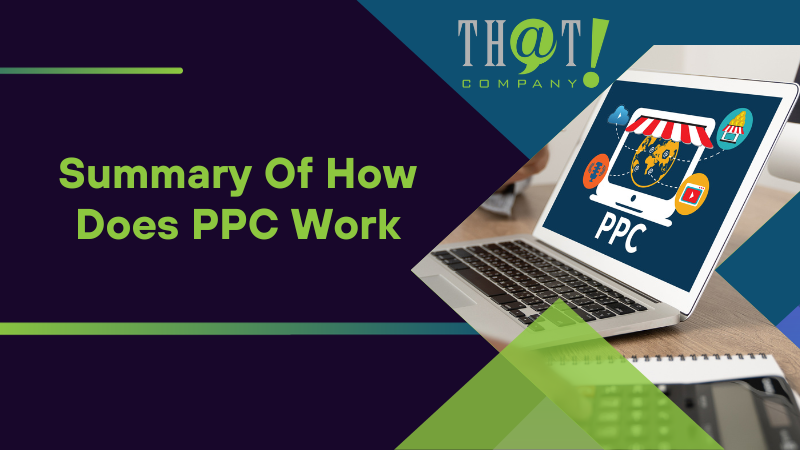
Summary Of How Does PPC Work
In conclusion, PPC advertising offers businesses a powerful tool to reach their target audience and drive conversions. By understanding the mechanics of PPC, employing best practices, and partnering with a reliable white label PPC agency like That! Company, you can create highly targeted campaigns that deliver results. With continuous monitoring, optimization, and collaboration, you can ensure the success of your PPC campaigns and achieve your desired return on investment.

Frequently Asked Questions For How Does PPC Work
How does PPC work?
PPC is an online advertising model in which an advertiser pays a publisher whenever an ad link is clicked, also known as the cost-per-click (CPC) model. It is offered mainly by search engines and social networks such as Google and Facebook.
How does PPC work on Google?
PPC on Google works by businesses bidding on keywords to have their ads appear in Google search results. When a user initiates a search, Google chooses ‘winners’ based on a combination of factors like quality and relevance of keywords and size of bids. Ads are charged on a Cost Per Click basis, so you only pay when someone clicks on your ad.
How do you profit from PPC?
With PPC, you can generate revenue from ads by bidding on phrases and keywords, setting clear goals, choosing the right keywords, creating compelling ad copy, and displaying ads on your content or running ads for your affiliate networks. Each time someone clicks on your ad, you will be paid a fee.
How do you explain PPC?
Pay-per-click (PPC) is an online advertising model in which an advertiser pays a publisher every time an advertisement link is clicked. The Production Possibilities Curve (PPC) is a model used to show the tradeoffs associated with allocating resources between the production of two goods. PPC stands for pay-per-click, a model of digital advertising where the advertiser pays a fee each time one of their ads is clicked.
How do I choose the right PPC platform?
Evaluate factors such as advertising goals, target audience, and available platforms like Google Ads, Microsoft Advertising, or social media when choosing the right PPC platform.

